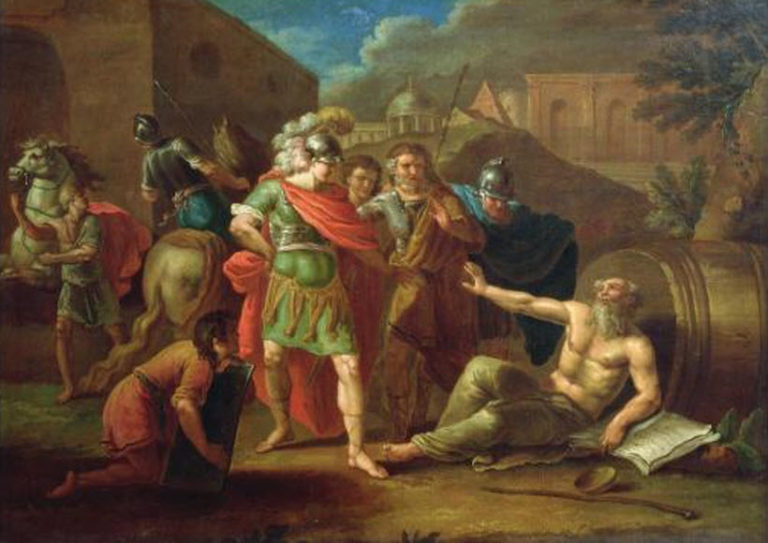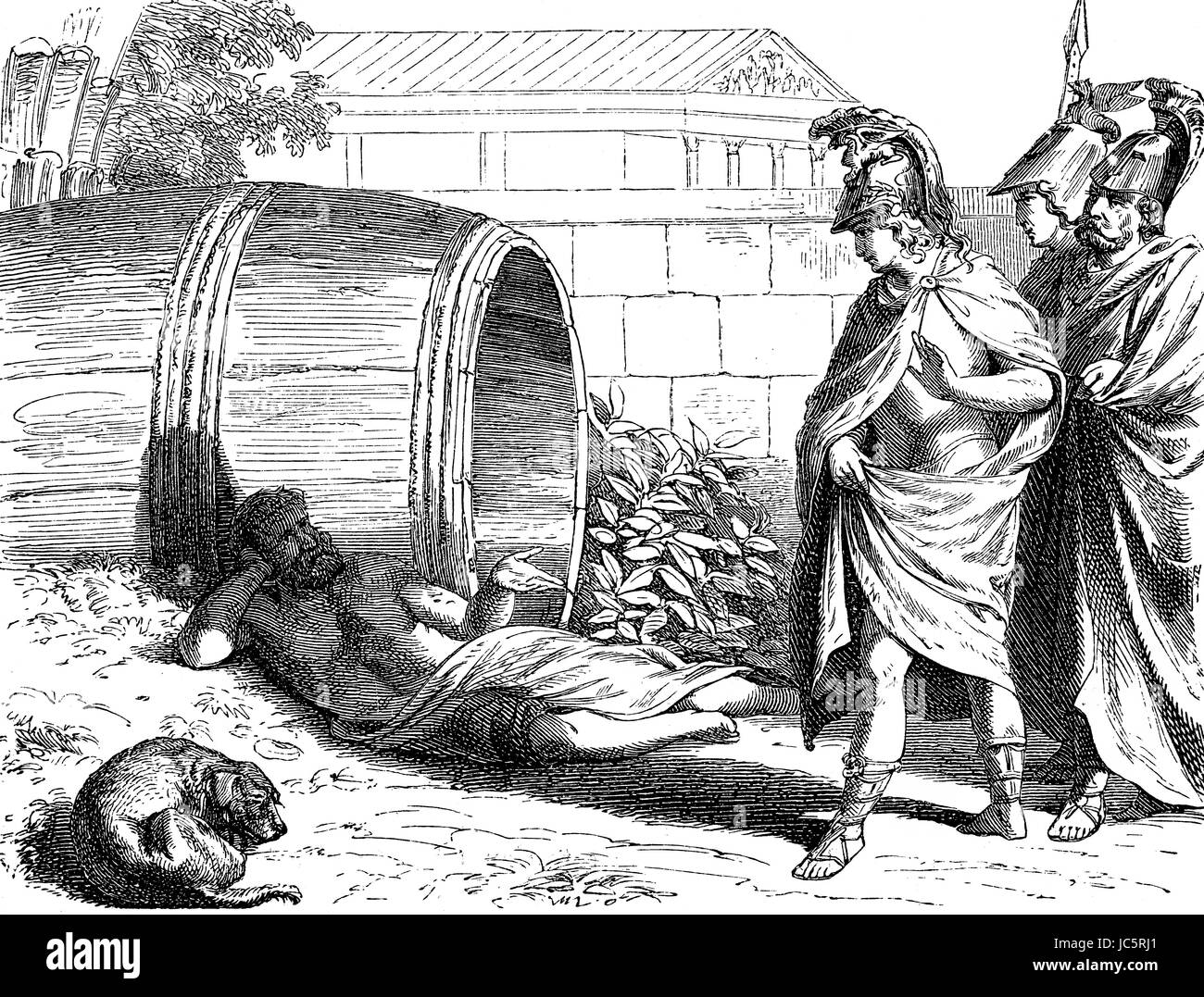


In turn, Diogenes, with his comment, made clear that he does not recognize Alexander the Great as someone of his own, not he expects him to be. One can speculate, Alexander’s reaction can be interpreted as him finding similarities between himself and Diogenes otherwise, he would not have said that he “would be Diogenes.” On the other hand, his words can be understood that as if he was not a noble king, he wished to be like Diogenes, who did not have to possess authority as means of gaining power. He was shocked by Diogenes’ brutal honestly and grandeur and admired his haughtiness. What is even more interesting is Alexander’s response to Diogenes’ words: “But verily, if I were not Alexander, I would be Diogenes” (Plutarch 261). Therefore, it shows that not only the public realized that these two historical figures were opposite of each other, both Alexander the Great and Diogenes saw a significant difference between them. This encounter demonstrates Diogenes’ disregard for any level of authority, despite Alexander’s status and people’s admiration for him. The commander came up to him and asked what the philosopher desired, to which Diogenes replied “Stand a little out of my sun” (Plutarch 261). Diogenes was lying in the sun, and rose when he saw that people surrounded Alexander. However, Diogenes did not go, and Alexander went to see him in person.
#Diogenes and alexander full#
Plutarch in his The Parallel Lives provides a full context for the anecdote: Alexander the Great, while staying in Corinth, expected Diogenee to congratulate him. Alexander the Great, who was already known as an excellent military commander, went to see Diogenes to fulfill Diogenes’ wish. One of the most famous anecdotes in philosophical history is the meeting of Alexander the Great and Diogenes. Alexander’s behavior is a complete opposite to Diogenes’ and his values: the philosopher and his followers positioned themselves on the margins of society, rejecting non-essential materialistic possession. He wanted Philip’s tomb to match Great Pyramid, build Lavish temples at Delos, Delphi, and elsewhere, and relocate the mass population between Europe and Asia (23). Green describes that these achievements made Alexander even hungrier for power, and his plans became unrealistic in execution (23). While Diogenes rejected the notions of authority and embraced the virtues of poverty, Alexander the Great was conducting countless military campaigns, conquering the lands from Greece to India.

Green reports that Alexander used to show symptoms of megalomania during his final months of life, a disorder that is characterized by an obsession with power and superiority (23). The most apparent difference between Diogenes and Alexander the Great is in their lifestyles and personal qualities. Alexander the Great also was fond of arts and science because he was brought up by Aristotle. According to Green, his education was “physically demeaning” since he was trained to be a perfect warrior (15). From an early age, Alexander the Great had boundless ambitions in conquering the world. In contrast, Alexander the Great is the classic example of great nobility: he was the son of Phillip II of Macedon, who was a role model for young Alexander. Diogenes was known for living and eating in any place he wanted to in a non-traditional fashion, often sleeping in a large ceramic jar. Julie Piering explains the semantic origin of the word “cynicism”: “kunikos,” or “kynikos,” from Greek means “dog-like” (92). The notion of Cynicism lies in that it encouraged life in connection with nature and freedom from conventionality, wealth, and authority. He was against conventions and criticized social institutions, as he believed they were corrupt. Diogenes had been taking the philosophy of Cynicism to extremes, leading a very simplistic lifestyle.


 0 kommentar(er)
0 kommentar(er)
